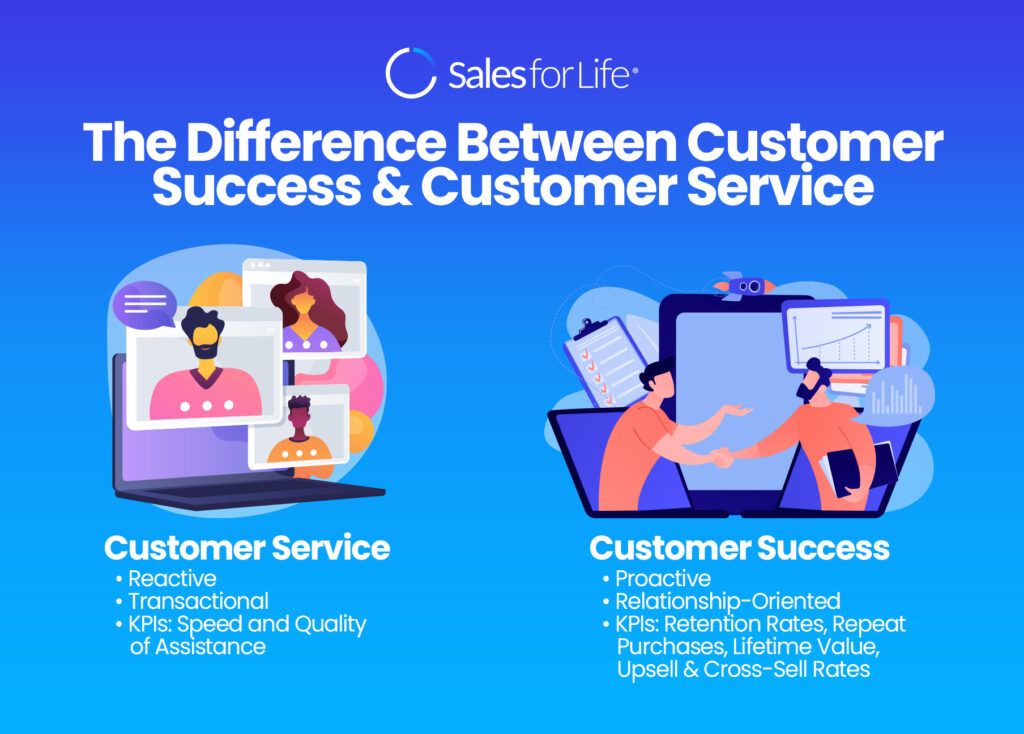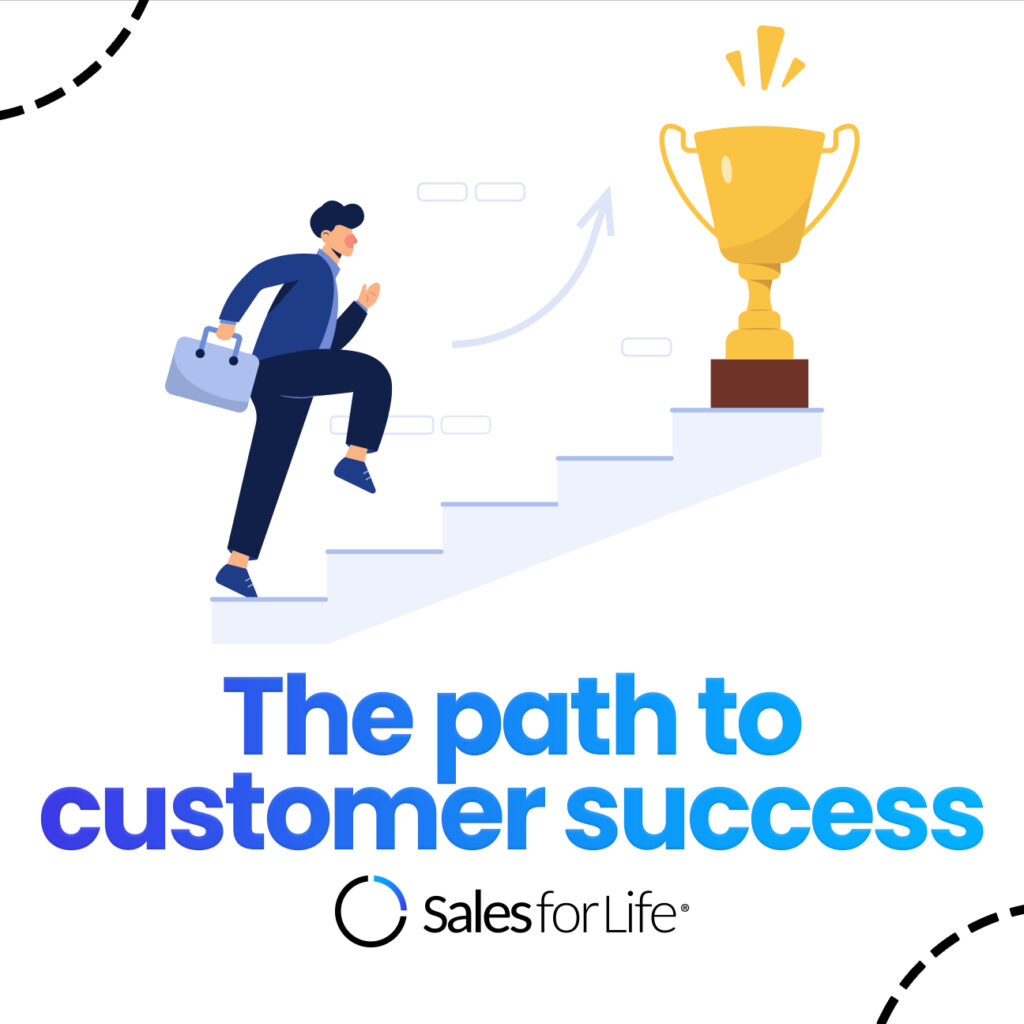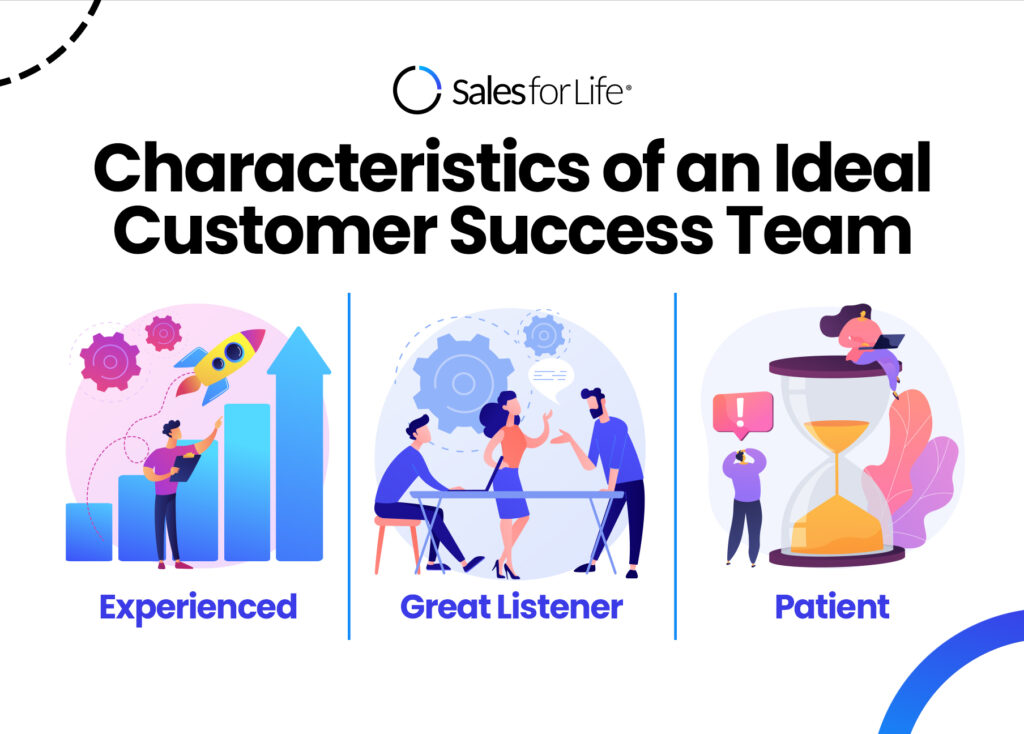Customer success is critical to every company’s progress in modern selling. This strategy is intended to ensure that the client successfully uses the company’s products and services. As a result, customer loyalty and retention improve, churn decreases, renewal sales remain consistent, and the business owner can upsell these accounts.
The distinction between customer service and customer success has recently aroused much debate. Although the two require similar skill sets and objectives, they take distinct methods.
What’s the difference between customer success and customer service?

Reactive vs. Proactive Management
Customer service is often “reactive,” meaning that it responds to a customer’s request for assistance or when they contact them with an issue or query. Customer success, meanwhile, is “proactive,” concentrating on assisting clients in identifying and achieving their objectives.
Relationship-Oriented vs. Transactional
The majority of customer service and support contacts are transactional. It starts when a client contacts you and terminates to respond to their request. Customer success, on the other hand, does not have an endpoint. It’s a continuous, dynamic, and persistent focus on enhancing current connections to strengthen the tie between the client and your business.
Key Performance Indicators and Metrics
Customer service metrics are focused on monitoring and improving both the speed and quality of assistance interactions. This level of assessment usually ignores events that occur before or after the support engagement.
On the other hand, customer success is concerned with the beneficial effects that those interactions may have on a happy client, such as improved retention rates, rising repeat purchases, higher lifetime value, and higher upsell or cross-sell rates.
The path to customer success

Make the client, not your product, the focus.
There’s a reason it’s called customer success. Make it such that you assist clients in achieving their objectives and your product benefits as a result, rather than the other way around.
You must also be aware of your clients’ journeys. To do so, lead them through their journey from awareness to retention. You must be familiar with your product, including what it can and cannot accomplish. Always make sure that your reaction is in line with their cultural beliefs. Never make a promise you can’t keep. Make sure they know how much you respect their time.
Clients’ perspectives must be taken into account when speaking with them. Avoid sounding excessively professional or bombarding them with jargon. Use their degree of comprehension to communicate. You could think that using templates and prepared replies is a good idea, but clients will notice. As a result, you must leave such replies to automated communications. Also, pay attention to what they’re trying to say. Make your replies and background on your inquiries as precise as possible. You must make every effort to please them.
Keep expectations in check.
The requirement to manage client expectations is inextricably linked to creating an Ideal Customer Profile. Success should not be defined by closing a sale; instead, it should be determined by resolving your clients’ problems. Accounts don’t buy your product; they buy a solution. When they get the result they want, their problem is solved. The question is, what problems are you tackling specifically?
Clients with different issues will demand varying levels of solutions from your product if you don’t narrow down the value proposition. You’ll wind up with many unhappy and furious clients whose issues your product isn’t addressing, and they’ll tell your genuine clients about their bad experiences.
So, how do you keep track of your accounts’ expectations? Of course, by being precise about your value offerings. Don’t be an all-in-one bargain for your clients. Instead, choose your product’s finest qualities and advantages and promote them in your communications.
Ask regularly.
Requesting feedback is standard corporate practice. What’s to stop you? It aids in the development of a clear image of how real people use your product. This is the foundation for making product changes and enhancements before they become serious problems. It also aids in the development of client loyalty.
Customer success, as previously said, takes a proactive approach. You may also apply this to your clients. Inquire about their work and feelings towards your product or service. Maintain an open line of communication and various communication channels so that people may contact you at any time and via their chosen mode.
Assign the right people to the job.

To increase your bottom line, success management is essential. As a result, it should go without saying that the individuals in charge should be outstanding. They must be able to deal with various situations and communicate effectively with consumers.
At the absolute least, your customer success team members should possess the following characteristics.
- Experienced
They must have extensive knowledge and experience in the industry they work in. They’ll provide guidance, answers, and directions, among other things.
- Great listener
When clients take the time to come to you with a concern, the least you can do is listen. Good customer success people, on the other hand, go beyond that. They pay attention to the issue at hand and recognize the issue they’re experiencing, no matter how minor. This is the most effective technique to deal with their technical and emotional problems.
- Patient
Early consumers demand a lot of hand-holding and assistance. In addition, they have great expectations. As a result, successful sales teams must be competent in dealing with this. They must be able to lead their clients through the entire process, including the ups and downs, and answer any questions they may have, all the while retaining a calm and polite approach.
Conclusion
Producing a high-quality product and marketing it to your target market is no longer enough. Clients are more demanding than they have ever been. They won’t settle for anything unless they’re confident the solution they’re investing their money in will work for them. To keep your clients loyal to your business and generate sales, you must be the best match for them. Ensure this by implementing customer success in your business.


